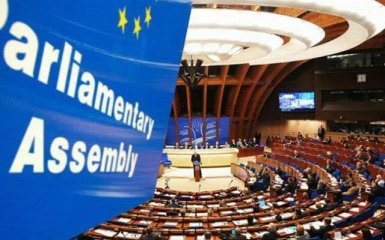Head of the State Duma of the Russian Federation, Vyacheslav Volodin, said that on February 21, the Russian Parliament and the Federation Council plan to simultaneously decide to terminate Russia's membership in the OSCE Parliamentary Assembly.
What is known about Russia's withdrawal from the OSCE Parliamentary Assembly
In particular, the head of the State Duma of the terrorist country called the OSCE PA a non-independent organisation, which, according to him, is completely under the control of the United States.
The worst thing in this situation is that we are still paying money, and we are one of the largest payers, so we have to leave, stop transferring funds, — Volodin declares.
The Parliamentary Assembly unites 57 member states of the Organization for Security and Cooperation in Europe. The organisation was created in 1991 to monitor the implementation of OSCE goals, develop and implement mechanisms for conflict prevention and resolution, and promote the strengthening and consolidation of democratic institutions in the OSCE participating states.
The OSCE PA is one of the central institutions of the OSCE, which plays an important role in the process of solving the tasks of the entire Organisation. Headquartered in Copenhagen, Denmark.
What is known about Russia's latest provocations in the OSCE
As mentioned earlier, the aggressor country, for many months, hindered the full-fledged work of the OSCE, primarily opposing the election of Estonia as the presiding state in 2024.
Moreover, the scandalous Russian MFA chief, Sergei Lavrov, even threatened to block the organisation's activities permanently.
Given that in the OSCE, all decisions must be made by consensus, other countries were forced to make concessions due to threats from the Kremlin. They supported neutral Malta, to which the Russian Federation had already agreed.




